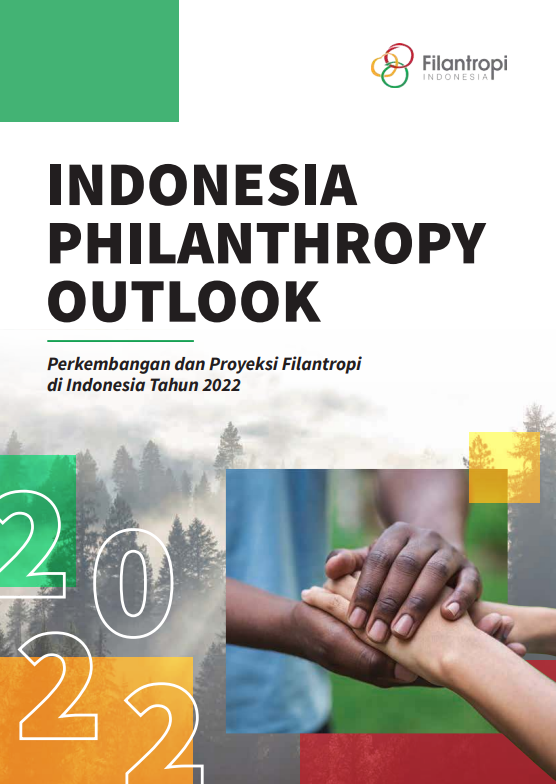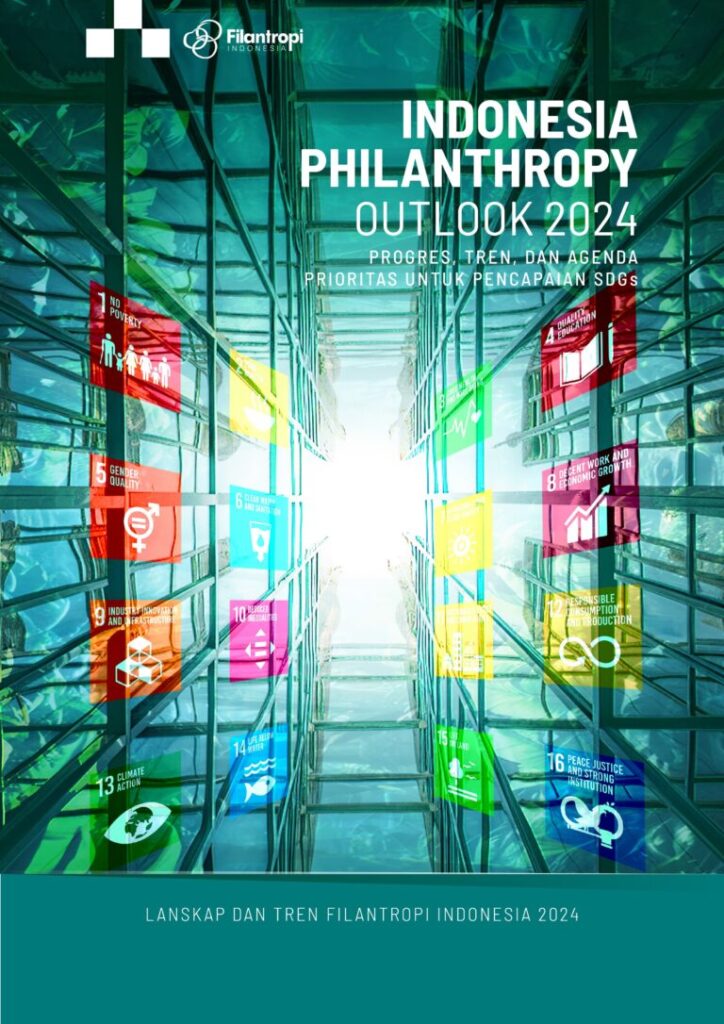Understanding What Philanthropy Is and Its Practices in Indonesia

By: Deni Puspahadi, Treasurer of the Executive Board of the Philanthropy Association of Indonesia
In a diverse social context, there is one activity entirely driven by the spirit of mutual help, not just for the short term but also to build and empower. That activity is philanthropy. Etymologically, philanthropy comes from the word philein, which means “love,” and anthropos, which means “human”.
Simply put, philanthropy is the act of giving and caring for others with a strong and organized foundation. When related to the concept of almsgiving or charity, philanthropy can be said to have a broader and more structured scope. Talking about philanthropy is not only related to the aspect of giving but also includes the aspects of maintaining and receiving.
Teach a Man to Fish, Not Just Give Him a Fish
As an illustration, there is a Chinese proverb that says, “Give a man a fish, and you feed him for a day; teach a man to fish, and you feed him for a lifetime.” This principle is relevant in further understanding the concept of philanthropy. For example, philanthropic activities are designed to support the education sector through improving children’s nutrition, providing scholarships, training teachers or facilitators, and educating parents on parenting styles. These programs aim to improve the quality of education and students in a community or region. The long-term goal is to create a more successful generation that can transcend social boundaries and contribute to the overall progress of their region.
Thus, well-structured philanthropic activities are not only oriented toward short-term goals but also include long-term goals with a sustainable domino effect. However, this sustainability is not limited to human welfare but also includes the preservation of the environment in which people live.
The Philanthropy Landscape in Indonesia
Referring to the balance between human life and the environment, philanthropy emerges as an effort to seek solutions to the imbalances that exist in various layers of society. Issues such as economic and educational inequality, empowerment, and environmental preservation are the main focus.
Indonesia, as a country with religious, cultural, and ethnic diversity, is not exempt from these imbalances. Not to mention the geographical obstacles in the form of islands that create regions that are rarely or even difficult to reach by central government distribution.
Based on the latest data from the Indonesia Philanthropy Outlook 2024, there are five main themes that tend to dominate philanthropic programs in Indonesia, namely:
- Economic empowerment
- Education
- Health
- Climate and environment
- Poverty
Of these five themes, economic empowerment ranks the highest priority with a percentage of 11.2%, followed consecutively by education, health, climate and environment, and poverty. Furthermore, if viewed from the work area or intervention area, these priority programs are found in 31 provinces in Indonesia with varying percentages. The regions with the largest concentration of programs are still around Sumatra, Java, Bali, and Nusa Tenggara. This means that efforts are needed to ensure that other regions, such as Kalimantan, Sulawesi, and Eastern Indonesia, have equal access to these philanthropic programs.
A Glimpse of the History of Philanthropy Development in Indonesia
The development of philanthropic activities in Indonesia has shown significant growth since the 1980s in the form of foundations, non-governmental organizations, zakat institutions, and other formal institutions. During this period, many parties began to actively engage in philanthropic activities and recognized the importance of philanthropy in democratic governance.
The enactment of the Foundation Law in 2001 triggered the growth of increasingly innovative philanthropic foundations and brought positive impacts, particularly related to the diversification of fields and the scope of beneficiaries of philanthropic activities. Until 2024, the Philanthropy Association of Indonesia has released the Indonesia Philanthropy Outlook 2022 and Indonesia Philanthropy Outlook 2024, containing the latest studies and data on the typology of philanthropic institutions in Indonesia.


In Indonesia, philanthropic institutions can be categorized into three based on their roles: first, grantmakers, where philanthropic institutions have resources and distribute their grant funds to smaller philanthropic groups. Second, intermediaries have the ability to raise resources from various parties and redistribute them to smaller philanthropic institutions. Third, implementers, as philanthropic institutions that raise funds and use them directly in programs.
In addition to their roles, philanthropic institutions in Indonesia are also distinguished into four categories based on their funding sources, namely:
- Family Philanthropy
Philanthropic activities are initiated and funded by a particular family, usually public figures or entrepreneurs. One example of family philanthropy is the Hadji Kalla Foundation, founded by Drs. H. Muhammad Jusuf Kalla in Makassar, South Sulawesi, in 1984. This foundation focuses on education, poverty alleviation, and community empowerment. - Corporate Philanthropy
Philanthropy is run with primary funding from a company, closely related to the company’s vision and mission. In this category, it is also found that some companies have separate foundations to manage corporate philanthropic funds specifically. On one hand, it is also run through Corporate Social Responsibility (CSR) programs as regulated in the Law on Limited Liability Companies and Government Regulation No. 47/2012. Adaro Bangun Negeri Foundation is one example of a corporate philanthropy organization that empowers communities by improving health, education, economy, social and cultural aspects, and the environment. - Independent Philanthropy
Generally funded by institutional or broad public donors to run its programs. PLUS Foundation is an example of independent philanthropy that serves as a platform and access to enhance the potential of Indonesian communities through entrepreneurship. - Religious Philanthropy
Religious philanthropy is primarily funded by religious activities, such as Lazismu (zakat in Islam), YASKI (Christianity), BAKKAT (Catholicism), and Buddha Tzu Chi Foundation (Buddhism). Religious-based philanthropy has developed rapidly, driven by the cultural and religious values of Indonesian society.
Government Support for Philanthropic Activities
The rapid growth of philanthropy in Indonesia cannot be separated from government support through regulations such as the Foundation Law of 2001, Government Regulation No. 93/2010 on donations, Law No. 47/2012 on corporate social responsibility, and the Organization Law of 2013. With a strong legal foundation, philanthropic activities in Indonesia can continue to develop and have a positive impact on society and the environment.
The Indonesian Government and Philanthropic Activities
Indonesia, as a country with vast territorial coverage, faces complex challenges, especially in terms of geographical conditions and significant social inequality. These challenges have the potential to slow down inclusive development progress. As a solution, a co-creation-based approach is needed to build programs that are both solution-oriented and relevant. In addition, collaboration in sharing resources and expertise, as well as collective action, becomes an important prerequisite for achieving the goals of various philanthropic programs.
This collaboration and collective action are not only important to strengthen the various typologies of philanthropic institutions but also need to involve other stakeholders such as the central and regional governments, academia, and the private sector. The involvement of all these elements will ensure that philanthropic programs can comprehensively and sustainably meet needs.
Once the relationship among these stakeholders is well established, the next step is to increase public trust and participation in the philanthropic activities that are being and will be implemented. To support this, we have released the Indonesia Philanthropy Outlook 2024, a study aimed at expanding knowledge of philanthropy practices and their distribution in Indonesia. With increased public understanding of philanthropy, it is hoped that collaboration and collective action can be realized more easily and effectively, allowing various philanthropic program goals to be achieved optimally.

